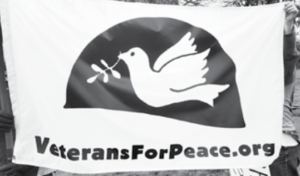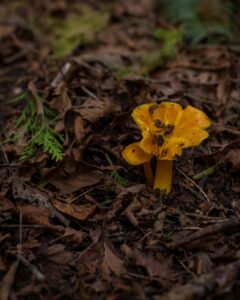Like most issues of Works in Progress, this one came together while the stories were still (d)evolving. Russia made good on its promises concerning Ukraine, students weary of racist policies at a local high school staged multiple day walkouts, city officials initiated an extensive planning process for Olympia’s Westside with no provision for affordable housing and bills were introduced in the legislature that would unravel years of work to increase police accountability.
Last year WIP printed an interview with Christine Yorba, then a teacher at North Thurston Public Schools. Yorba made some pointed observations about a toxic learning environment that failed to deliver on new policies that claimed to combat racism and value diversity. One example of this failure was captured in a video in January that shows racial slurs being shouted from the stands by “fans” during a Capital HS (in Olympia School District) vs River Ridge HS (in North Thurston school district) basketball game.
Representatives from the district condemned the behavior and promised to investigate. But by then, North Thurston students staged a series of strikes and issued a letter we reprinted in this issue. A list of recent racially-charged incidents in the District appears on page 6.
In a recent exchange with WIP, Yorba reported that she too had finally tired of the District’s inaction:
“Shortly after [the WIP] interview, I realized that no impactful or meaningful changes were going to be made regarding the abusive NTPS policies and behavior towards Teachers of Color, students, families, and their accomplices, so I decided not to renew my contract. I refuse to work in hostile environments that dehumanize me, compromise my safety, and/or actively impede my work towards social justice.”
“NTPS students/staff/families won’t see any necessary changes until the district administration, the names I mentioned in my interview, are ousted. They are upholding white supremacy culture and there are many in the district and beyond who benefit from them being in those positions of power, which is why our fight for change was going nowhere. It’s frustrating that we’ve identified the people at fault and what needs to happen for our community to move beyond being oppressed, but as we know, it’s hard to take power from the people who benefit from it.”
March is the month we remember Rachel Corrie, the young Olympia native who lost her life 19 years ago defending a Palestinian family’s home from destruction by an Israeli bulldozer. Austin Okopny writes that he was a teenager when Corrie died, watching night vision footage of the US invasion of Iraq in his living room. It would be years before he even heard of Corrie, and even longer before he would find himself living in her hometown and interning for the foundation her parents established in her name. We welcome Austin’s reflections about his growing awareness of the legacy of genocide.
We also follow up in this issue on last month’s inquiry into the status of public forest lands and the state agency with the power to decide their fate. Who’s really calling the shots at the Department of Natural Resources? The analysis of Hilary Franz’s campaign donations on page 5 offers a few clues. In their latest email to subscribers, 350 Seattle, a non-profit devoted to fostering environmental change at the most elemental levels, shares a new statistic we should have seen coming—that Washington’s third largest source of greenhouse emissions is logging. The time has come for the forestry and fossil fuel industries to come clean about their contributions to ecocide.
Several other stories in this issue reflect our “what lies beneath” theme, some quite literally, like Ava Arvest’s piece on what underground mycelia have to offer our damaged world and Marcia McLaughlin’s review of Waste: One Woman’s Fight Against America’s Dirty Secret by Catherine Flowers. The latter reviews a hard-hitting expose of how the consequences of the mismanagement of human excrement and toxic wastes have largely been borne by Black and poor people. We also encourage you to read Dan Leahy’s brief summary of proposals for developing land just off Boulevard Road (covered by WIP in September 2021). Only one proposal appears to address Olympia’s need for affordable housing. Most, predictably, are designed to attract middle to high income residents, and one with seniors in mind fails to mention proposed rental rates.
We leave you with this short excerpt from Chris Hedges, in his most recent article for Scheer Post, titled
“Chronicle of a War Foretold.”
“After the fall of the Soviet Union, there was a near universal understanding among political leaders that NATO expansion would be a foolish provocation against Russia. How naive we were to think the military-industrial complex would allow such sanity to prevail.”
~LL

Upcoming themes
April: Taking time, making time, doing time.
Do we make time for ourselves and our families, mindfully, willingly? Are others taking our time from us? How did the 8-hour workday morph into having to be available by phone after the shift ends? How do incarcerated people mark time? Are we using time or is it the other way around? Deadline March 15.
May: Hostages to the future.
It’s moving ahead, with or without us. Who’s keeping track? Is change the same as progress? Is being human still a good thing? Who gets to decide? Deadline April 15.
June: What moves us.
What moves us emotionally and does sentiment lead to change? What other ways are we moved? Is being moved always a good thing or only when we welcome it? What happens when we’re forcibly moved, physically or into a different way of thinking or behaving? Deadline: May 16
About the cover
Born in Casablanca, Aïcha El Beloui is an architect working as an illustrator, creative director, and graphic designer. Responding to a need to express the invisible urban experience, Aïcha uses research, interviews, drawing, and animation to represent the unwritten narratives present in urban human habitat through its habitants; works produced are displayed in public space.
“I am motivated to understand and express the unexpressed; the daily struggle of those not heard, the unwritten narratives. Socio-political environment, historical narratives, and/or media manipulation strongly influence and affect perception and judgment; the use of allegory across a number of mediums invites the viewer to experience alternate perspectives and form a more complete narrative.”

Be First to Comment